Betting Big on the Kentucky Derby? Crowds Are Also Placing Their Chips on the Next Pope
The wagers fly as the highest-ranking leaders of the Catholic Church converge in Rome to pick the next successor to St. Peter's throne. Bettors play the numbers as bookmakers set odds like it's the ides of March Madness. "The people of Italy are in a state of excitement that is indescribable," the screaming headlines exclaim.
That was in 1878 , but it could well have been today. Betting on the pope's election is a pastime that goes back at least 600 years, and while it may not be exactly legal in the United States, bets are being laid down in Britain and beyond as the conclave to pick Pope Francis’ successor gets set to begin on May 7.
“Gamblers will seek to place wagers of any type, whether it’s football or popes,” said Bill Ordine, author of “Fantasy Sports, Real Money: The Unlikely Rise of Daily Fantasy" and a now-retired former national writer for Gambling.com. "This is a lot harder to pick than, say, the number one pick in the NFL draft."
Begin your day with more knowledge. Receive all essential news directly in your mailbox every morning.
Papal betting exists in a murky zone within the realm of gambling. While you cannot place an official wager at casinos like those found in Las Vegas, and there are hardly any US-based websites that would take bets on the subsequent Pope. Nonetheless, various platforms still offer such opportunities. spell out the odds From then on, individuals must determine how they can make a wager. Often within the U.S., these bets occur casually among friends playing poker or next-door neighbors.
R. Andrew Chesnut, chair in Catholic studies at Virginia Commonwealth University in Richmond, said betting on the pope is part of "a larger culture of betting on everything. You can even bet on the deaths of celebrities. Everything’s become bettable these days, so it’s no surprise that this would, too. It’s something of interest to billions.”
This does not imply that the church views the practice as good sportsmanship. As Father Paul Keller from the Diocese of Columbus stated, recently wrote In the Catholic Times: "It’s unwise to speculate about who might become, or ought to become, the next pope. Such speculation is not just inappropriate; it’s disgraceful and embarrassing, as it equates a sacred position and individual with activities like horse racing or playing roulette."
Despite this, as the conclave at the Sistine Chapel draws near, both analysts and bettors become increasingly engaged. are weighing in on their potential choice.
Could it be Cardinal Luis Antonio Tagle, the previous Archbishop of Manila known as the "Asian Francis," who might become the first Asian pope ever? Alternatively, could it be Cardinal Pietro Parolin, the seasoned Vatican diplomat, chosen to bridge the gap between progressive and conservative factions within the Church?
Is it possible that it could be Peter Erdo, the previous contestant and theological conservative from Hungary? Or perhaps American Cardinal Joseph Tobin, who serves as the Archbishop of Newark, New Jersey? Could the new Pope come from Italy, or will they instead emerge from the expanding Catholic presence in Africa?
Oddsmakers are carefully tracking the changing landscape, with platforms like Britain’s Online Betting Guide providing updates and summaries of the leading contenders. As time progresses, Pope Francis On April 21, the website highlighted that Tagle and Parolin came forward as the early favorites , with Parolin taking the lead and keeping it from then on.
The decision to position Parolin as the top choice showcases his strong connections with the Vatican along with his reputation as a leading diplomat, wrote Josh Ashton The website's chief news editor and specialist in current events betting commented, "Although Tagle retains significant backing, those placing bets might now be seeking an individual capable of bringing together more conventional aspects of the Church."
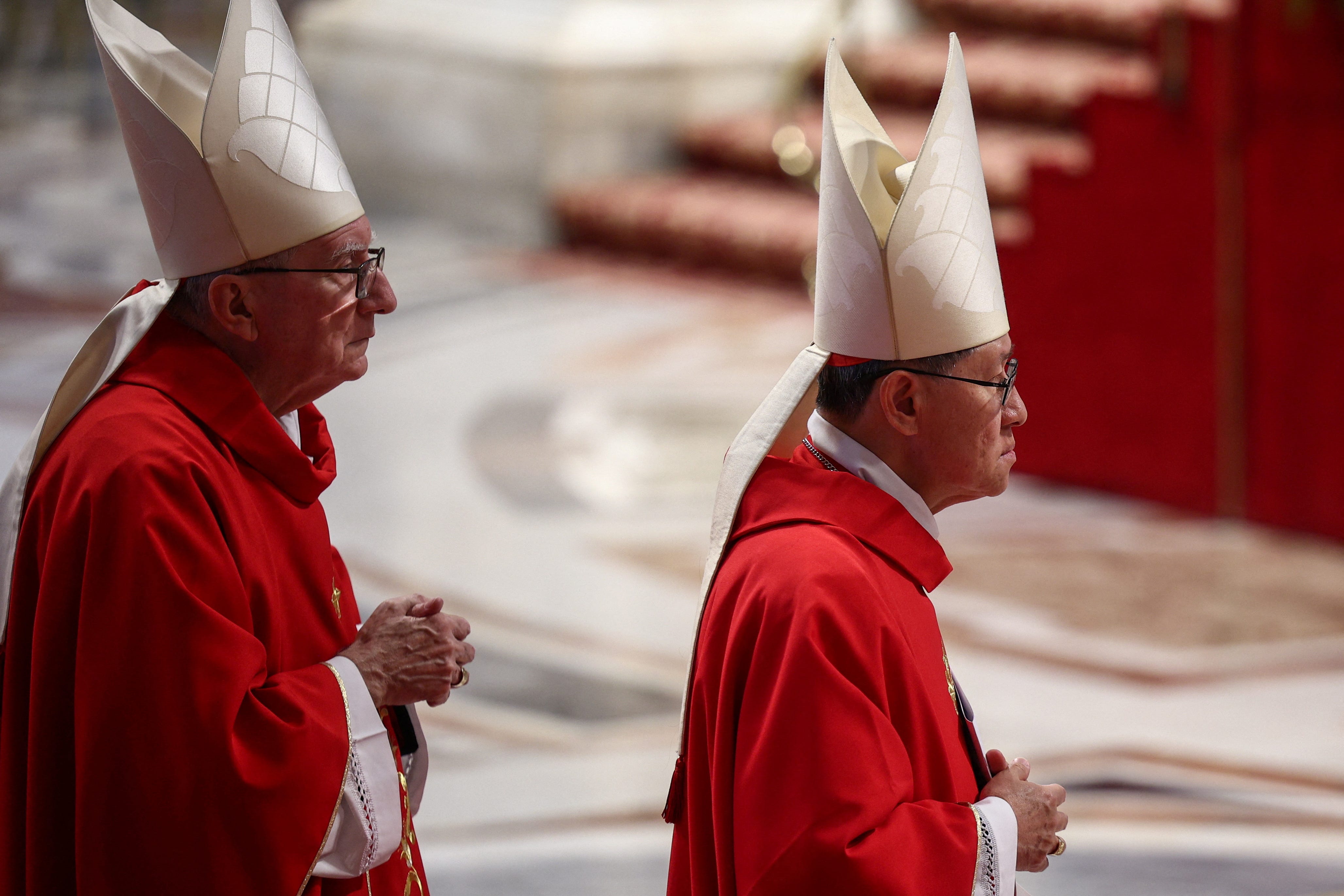
In addition to guessing who the upcoming pope could be, people can also place bets on what papal name the new leader of the Catholic Church might choose and which country he would come from. Although Italy is considered the top contender among possible home countries for the future pope, it remains the frontrunner. among oddsmakers is presently "a nation that has never produced a pope," with a 60% probability.
"I'm old enough to recall that if the man wasn't Italian, he wouldn't have been elected as pope," Ordine stated.
Over two hundred out of the 266 popes in the Catholic Church’s history have been from Italy; however, recent papal elections have shown a departure from this trend.
In 1978, Cardinal Karol Wojtyła from Poland was elected as Pope John Paul II; then in 2005, Cardinal Joseph Ratzinger from Germany took over as Pope Benedict XVI; finally, in 2013, Jorge Mario Bergoglio from Argentina became Pope Francis, marking him as the first leader of the Church hailing from the American continent.
Now, along with Italy, this cycle’s papabile — those seen as top papal contenders — includes frontrunners from Africa and Asia. According to British bookmakers as of May 1, William Hill In Italy, Parolin is the frontrunner with odds of 9 to 4, trailed closely by Tagle from the Philippines at 3 to 1. The Ghanaian leader Peter Turkson and Matteo Zuppi, who is the Archbishop of Bologna in Italy, both have odds of 6 to 1.
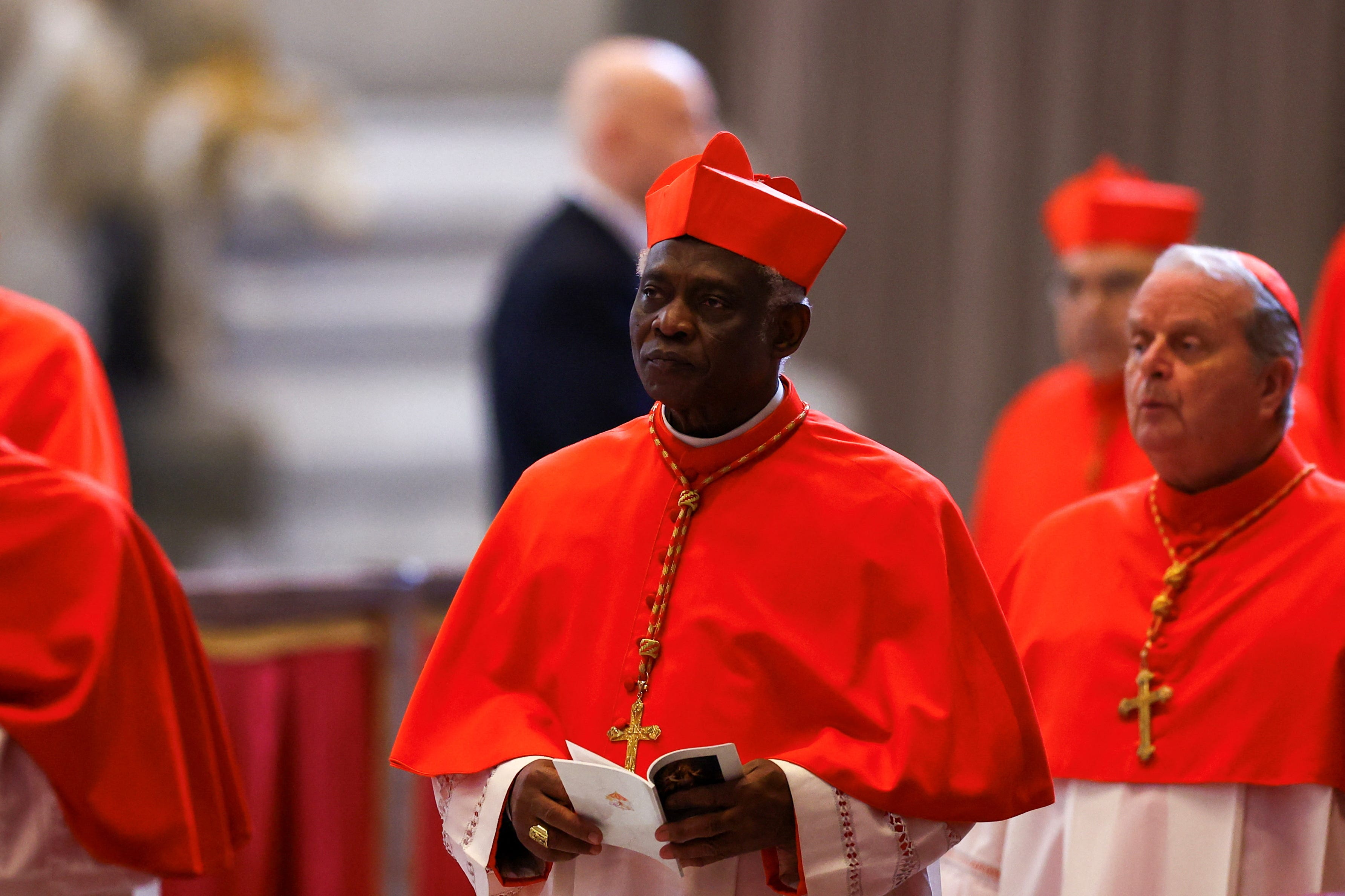
“Everybody thinks they know about sports, but who knows about picking popes?” Ordine said. “It’s not an event about which a lot of people bring a lot of knowledge to. Like, who’s thinking, ‘Which of these cardinals has the most ecclesiastic chops to be the pope?’ It’s the kind of wager people would make lightheartedly. You’re basically throwing darts.”
Fostering an atmosphere of 'gossip and chaos'
Historians say papal gambling dates back at least to the 1400s and was rampant in 16 th -century Rome. And the bets weren't just about papal elections, either.
A paper Published in 2015 by the Center for Gaming Research at the University of Nevada, Las Vegas states: "For instance, during the entirety of the first six months of 1584, Rome was abuzz with speculation about Pope Gregory XIII potentially visiting his birthplace in Bologna. Betting agents accepted wagers on whether he would indeed travel, precisely when he might depart, and how lengthy his stay could be."
John Hunt, the report’s author and an assistant professor of history and political science at Utah Valley University in Orem, penned that this period foreshadowed our current gambling-centric society. The Romans took such wagers further still; they betted on the gender of unborn children. Sensali, essentially brokers, scoured their communities for pregnant women willing to participate in these unusual contests.
The events at the Vatican followed suit, with Romans wagering not just on the outcomes of conclaves but also on cardinal appointments and papal actions. In 1588, brokers even accepted bets on whether Sixtus V would make a journey to Loreto to visit its renowned Marian sanctuary.
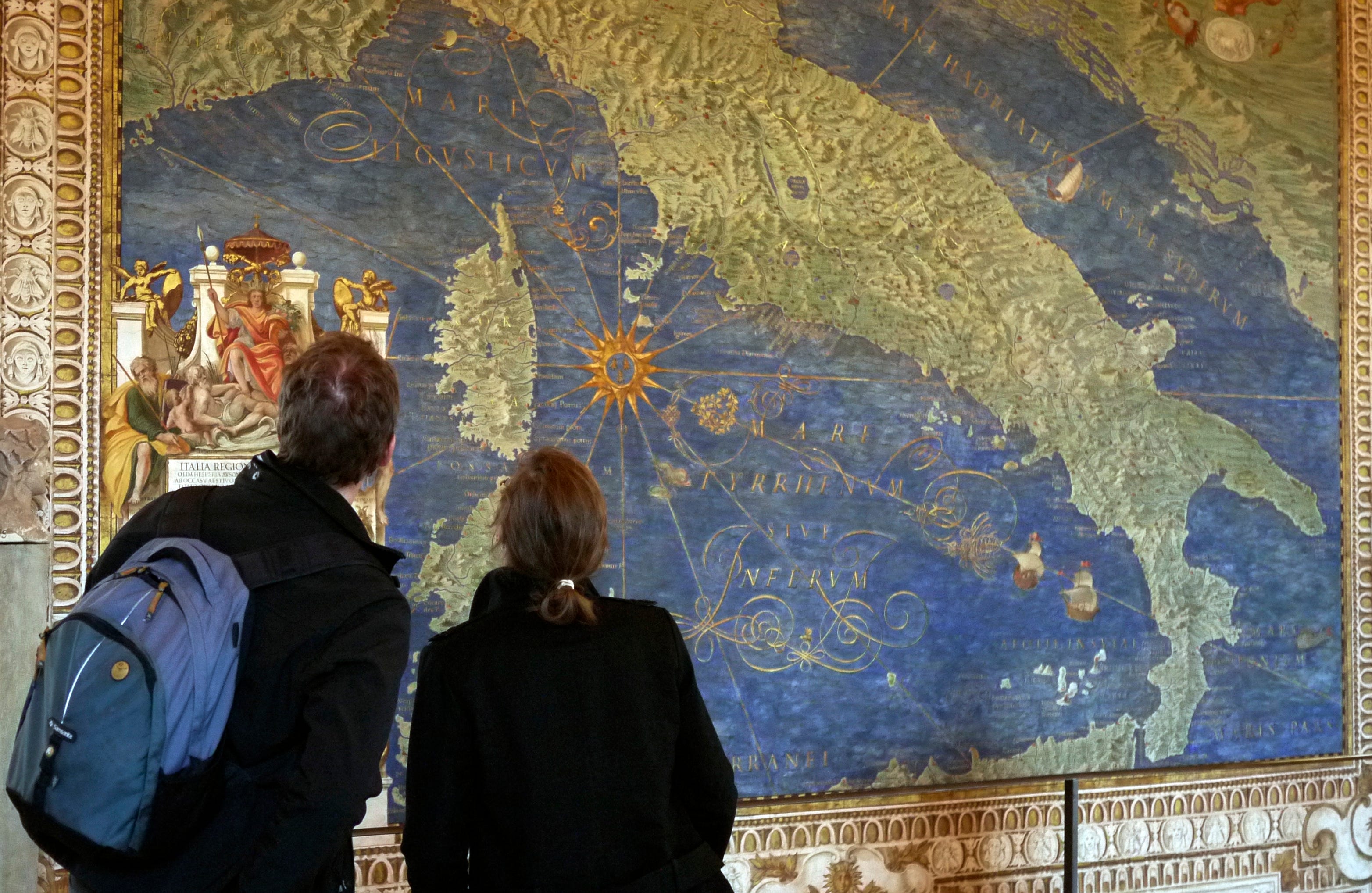
In 1550, a report from a Venetian ambassador detailed an early form of insider trading following the demise of Pope Paul III. The document stated, "It was abundantly evident that traders were thoroughly apprised of the election proceedings, and that the aides attending the cardinals within the papal conclave were engaging in bets alongside these merchants."
This is probably why the cardinals chose not to criticize the practice even though it caused "rumor and turmoil," as Hunt noted: “While they could have condemned its harmful impact on elections, many also engaged directly in the betting."
By 1591, the recently appointed Pope Gregory XIV had grown tired of the cardinals' sinful behavior and banned the activity, threatening excommunication as punishment. This decree was later annulled in 1918. according to Canon law specialist Edward Peters from Detroit’s Sacred Heart Major Seminary.
In any case, these threats merely drove the practice into secrecy, persisting for a few hundred years at least. This conclusion was drawn from a study conducted by the National Bureau of Economic Research. published in 2008 Noted media attention toward gambling activities surrounding Vatican conclaves in 1878, 1903, and 1922.
Following the death of Pope John Paul II in 2005, "betting on the upcoming papal election appeared to capture the interest of people worldwide," according to Irish gambler Paddy Power. told the BBC , referring to it as "the largest non-sport gambling market ever."
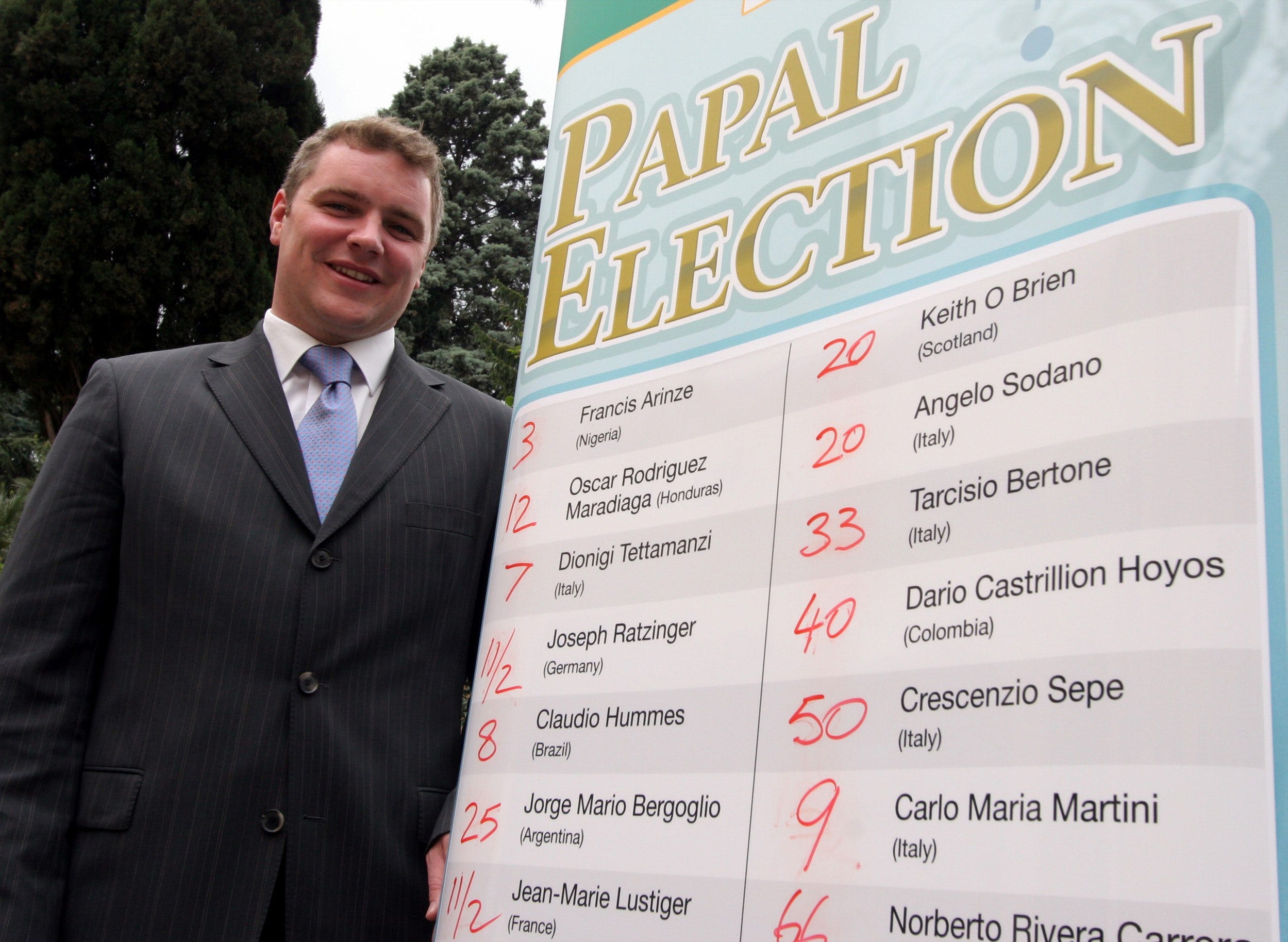
In 2013, Pope Benedict XVI stepped down from his position as pope, citing advanced age and declining health. Ghana’s Peter Turkson, the initial favorite At 11-4, they finally witnessed the papal throne pass to a 33-1 longshot Jorge Mario Bergoglio from Argentina.
This is among the most erratic markets in betting, wrote Ashton from Online Betting Guide states, "Unexpected events can and do occur during a conclave."
Betting odds for conclave choices are restricted in the U.S.
In comparison to the United States, sports betting is far more accepted in the United Kingdom and mainland Europe, where the practice is deeply ingrained, according to Ordine.
"Sportsbooks in Europe have significantly matured compared to those in the US," he stated. This shift started changing in 2018 when the U.S. Supreme Court struck down The 1992 Professional and Amateur Sports Protection Act (PASPA), which prohibited sports gambling apart from in Nevada, paved the way for platforms like FanDuel and DraftKings.
Ordine noted that "betting has grown more socially acceptable and entered the mainstream since Pope Francis took office. The surge in online sports betting has significantly altered how Americans perceive gambling."
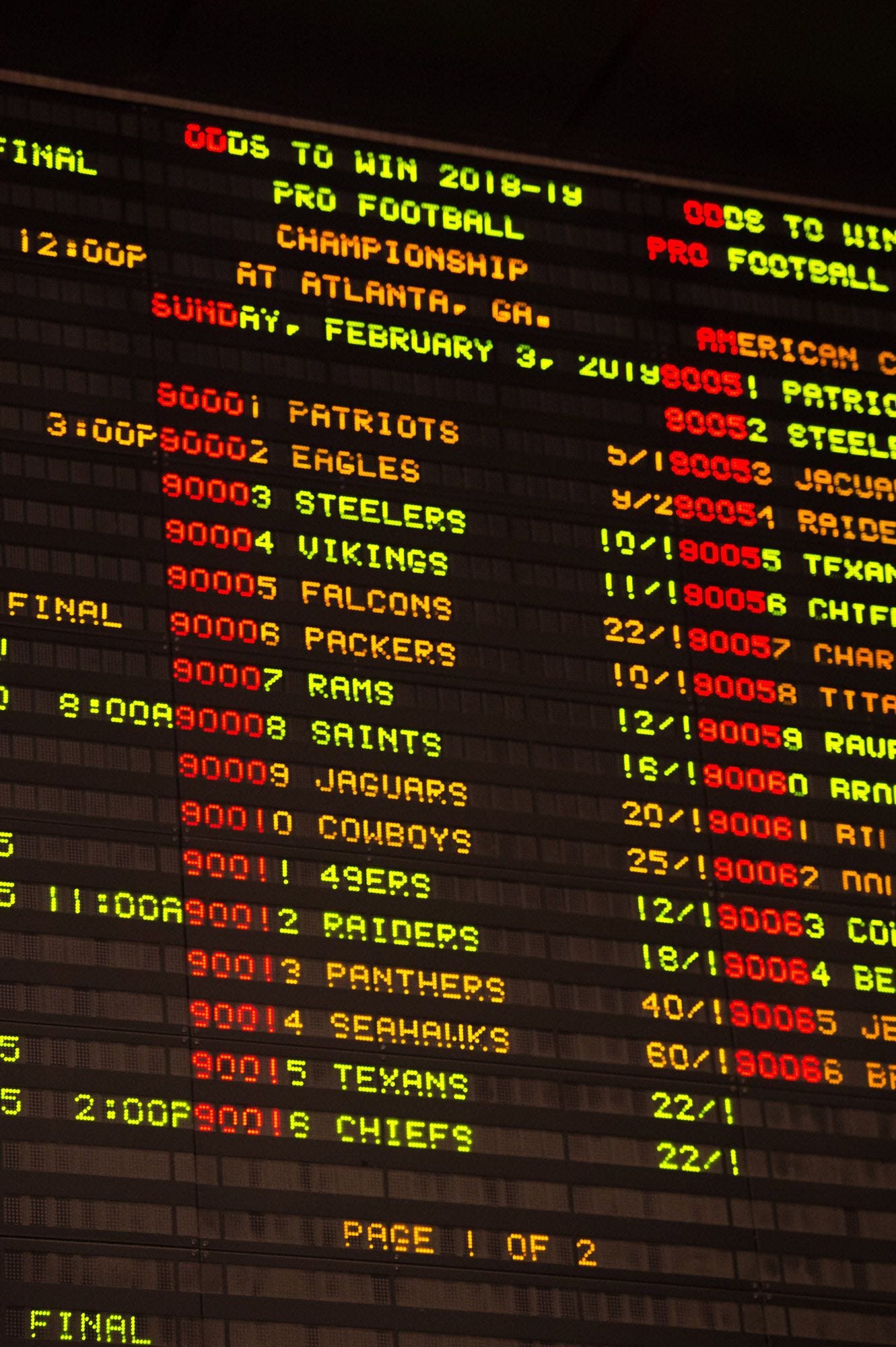
However, although papal elections provide an "appearance of sports betting," much like guessing the first-round selection in the NFL draft, these kinds of occurrences aren't propositions that casinos accept wagers on, according to Ordine. "Elections cannot be gambled upon in this nation."
According to Sportsbook Review A sportsbook and betting analysis site has stated that wagering on the papal conclave falls under events "that clearly lie beyond the realm of regulated sports betting." This domain primarily covers athletic competitions along with specific awards and entertainment-related scenarios.
Jim Strode, an associate professor of business at Ohio University in Athens, noted that although professional sports leagues have regulations in place to stop information from leaking out, "in states where sports gambling is permitted, they typically do not allow betting on any markets beyond sports due to numerous uncertainties and the difficulty in controlling possible insider trading."
This doesn’t mean speculators have run out of opportunities, although their choices come with certain risks. controversy . Prediction market platforms such as Kalshi and crypto-based Polymarket act more as betting exchanges for current events rather than licensed sportsbooks; users purchase contracts, similar to buying stocks, instead of making wagers.
Both sites have made inroads in the U.S. after a federal appeals court ruled in October that Kalshi could allow Americans to bet on the 2024 election, though some states have since struck back with cease-and-desist letters. Meanwhile, sports business site Sportico cited the American Gaming Association as stating these platforms "seem to bypass state regulatory structures."
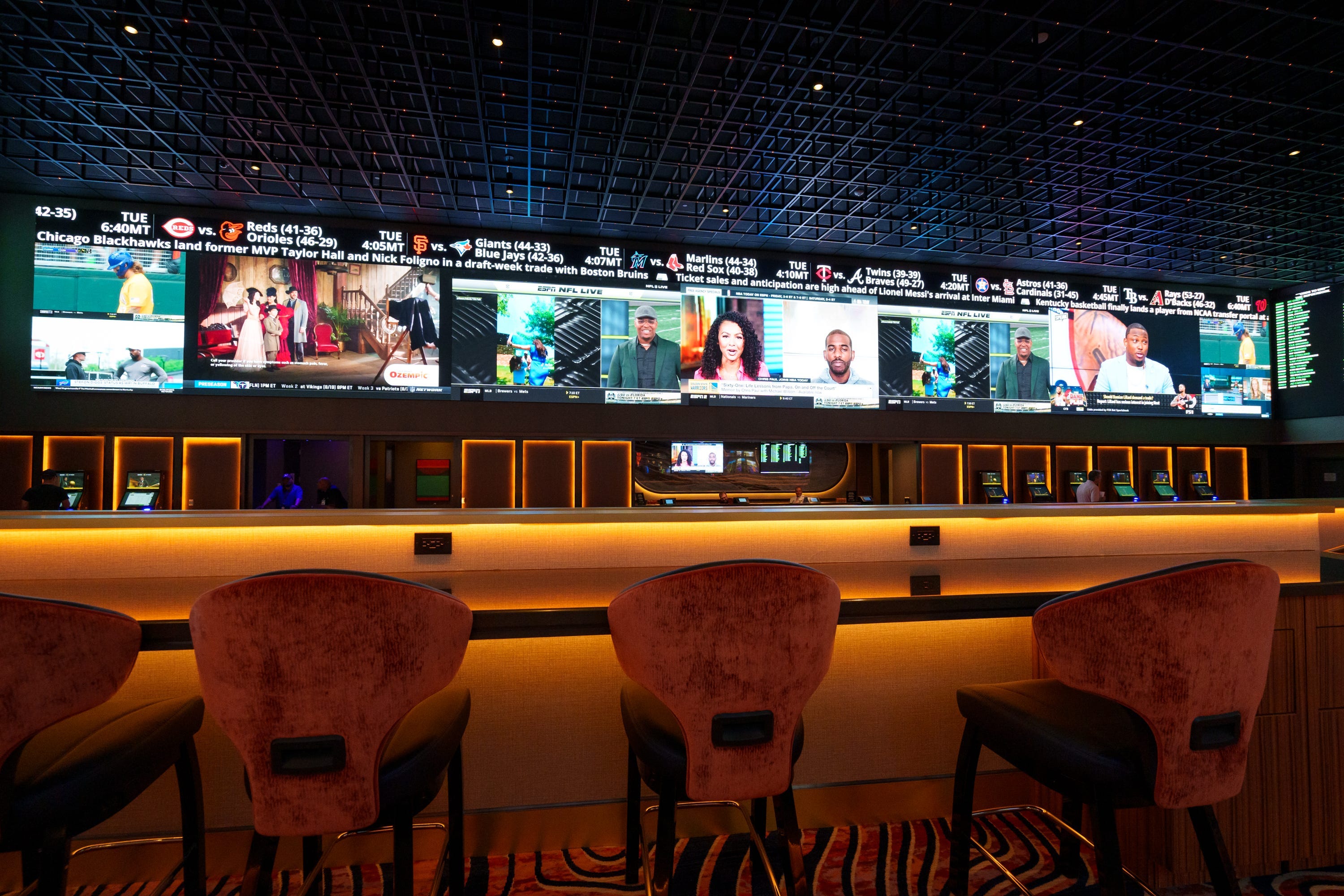
Nevertheless, Ordine believes that most betting on the conclave will probably occur casually amongst friends, akin to the squares People compete for the Super Bowl.
It will be insignificant in relative terms," Ordine stated. "When compared to events like the Super Bowl or March Madness, which involve billions of dollars, this would amount to mere pocket change. For instance, during the Super Bowl, people bet on everything from the coin toss to the color of Gatorade dumped over the winning coach’s head. The papal selection process won’t come close to such levels of gambling.
In 2013, the Religion News Service organized a "Sweet Sistine" tournament where participants could vote for their preferred choice among 16 prominent contenders, with Pope Francis not being one of them.
This just proves that it's anybody's game.
It's the kind of bet where individuals can participate without much ego at stake," Ordine stated. "Betting on football games means risking your expertise; failing reflects poorly on you. However, placing a few bucks on who might become the next pope isn’t like taking an ego hit if you turn out to be incorrect.
If Kenneth Pennington, who is an Emeritus Professor of Ecclesiastical and Legal History at the Catholic University of America in Washington, D.C., had to place a bet, he would likely put his money on Erdo from Hungary.
He dined with us at our place in D.C. a couple of years back, and I'd be thrilled to boast about it," Pennington stated. "However, he remains a very unlikely prospect.
A popular contender who has also emerged is Cardinal Robert Sarah from Nigeria, favored particularly among American conservatives; his chances stand at 8-to-1 according to William Hill Sportsbook.
However, Chesnut, of Virginia Commonwealth, doubts Sarah or any other major conservative has much chance given that Pope Francis, a liberal reformer , handpicked 80% among the electing cardinals of the conclave.
Twelve years back, I stood alone as the sole prominent Vatican observer predicting a Latin American pope," Chesnut stated. "In fact, I received hateful messages: 'Who does Chesnut think he is?' However, my belief was that it would specifically be from Brazil.
The article initially appeared on USA TODAY: Are you betting on the Kentucky Derby? Crowds are placing bets on who might become the next pope.
0 Response to "Betting Big on the Kentucky Derby? Crowds Are Also Placing Their Chips on the Next Pope"
Post a Comment